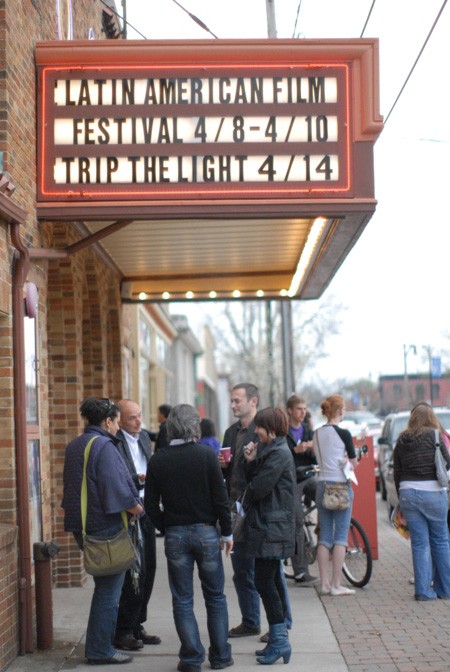Hollywood sheds pretenses for cultural dialogue

Courtesy Photo / gvsu.edu Last years film festival held at the Wealthy Street Theater
Apr 7, 2011
In an attempt to entertain and better educate students in the Grand Rapids area on the rich cultural diversities of one of West Michigan’s minority groups, three local colleges have come together to organize the second-annual Grand Rapids Latin American Film Festival.
The festival begins today at Celebration Cinema RiverTown with the showing of “The Student” and continues through Saturday at Wealthy Theatre in Grand Rapids. The festival is organized by the Grand Rapids Latin American Film Festival Committee, which includes professors from Aquinas College, Calvin College and Grand Valley State University.
In conjunction with the films, Aquinas, Calvin and GVSU students will provide introductions and lead discussions following each film. The films touch on an array of subjects including homosexuality, child soldiers and Peruvian ghost stories.
Zulema Moret, director of Latin American Studies at GVSU, said the goal of the festival is to bring films from all over Latin America together through a student-based film festival in an attempt to use cinema to show the different cultures and histories of Latin America.
“Through cinema we can learn how societies are built, and we can understand much better the behaviors of people, the challenges that people have to suffer through throughout their lives, why they are here and how they live,” she said. “Cinema is like a text, but it is easier to visualize.”
Latin America, a region that includes more than 20 countries in North America, Central America, South America and the Caribbean, is representative of a culture that GVSU film and video professor Toni Perrine said is often misrepresented.
“I think an important part of (the festival), and why we emphasize showing films from different countries, is that as Americans, we have a tendency to lump it all together, whereas there are very pronounced and distinct differences,” said Perrine, a member of the Grand Rapids Latin American Film Festival Committee. “All Latinos are not by far the same.”
Latin American cinema not only tells a different story than American cinema but tells it in a different way, said St?©phane B?©d?®re, professor of Modern Language and Literature.
“Latin American cinema is quite different from Hollywood cinema — the way the story builds, the story that is told, the rhythm of the movie — are quite different from the traditional Hollywood films with happy endings,” said B?©d?®re, a Latin American Film Festival committee member.
The festival also features screenwriter Oscar Torres, whose film “Innocent Voices” will screen at 7 p.m. on Friday.
Torres grew up in war-torn El Salvador in the 1970s and 1980s, and he said the first gun he held was that of a U.S. soldier. His film touches on many of these experiences while alluding to larger political issues, such as the use of children as a means of fighting a war.
Following the film, Torres will lead a discussion, which he said is instrumental in understanding the brutal civil war that devastated El Salvador.
“Because of this film, we are able to talk about things that we are not able to talk about otherwise, and through that, we are able to start a healing process,” he said.
Overall, Moret said the festival will offer a new cinema experience to most movie-watchers.
“We go to the theater to share this imaginary space that we call the cinema,” she said. “We are forgetting about this experience because we are close to the televisions at home – watching the movie without discussion and without talking about it. Through this experience, people can talk, they can learn and they can exchange ideas.”
Admission to all of the films, including “The Student” at Celebration Cinema RiverTown, is free. For a complete list of films and show times, go to the festival’s website, www.grlatinofilmfest.wordpress.com

























